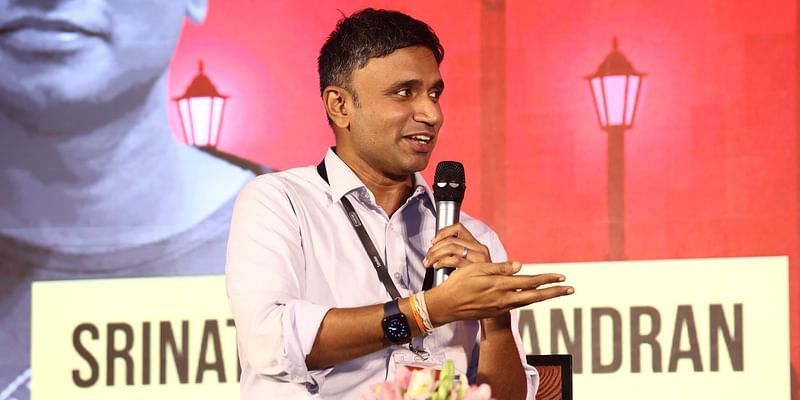
India’s private spacetech ecosystem has witnessed a complete overhaul in the past six years due to supportive government policies and bigger cheque sizes from investors, Srinath Ravichandran, Co-founder and CEO of spacetech startup AgniKul Cosmos, said.
“When we started in 2017, it was still a little unconventional to go and pitch spacetech startup to investors or even to customers and vendors, because people really didn’t think that to take off in India…I think that has completely changed,” Ravichandran said at YourStory‘s startup-tech event TechSparks 2023 in Delhi.
He said that Chennai-based AgniKul’s first round of funding in 2018 happened only after it went through 400 pitch meetings. In October, it raised Rs 200 crore ($26.7 million) in its Series B funding, increasing its total capital raised to date to $40 million. The company is developing launch vehicles that can take micro and nanosatellites to low earth orbit.
AgniKul, which test-fired its 3D-printed rocket engine in November last year at the Indian Space Research Organisation (ISRO) facility, now plans to do a test flight of the engine by this year end, Ravichandran said.
He also said that AgniKul as well as other spacetech startups, like those building satellites or on the imaging side, are “trying to make space more of a platform as opposed to what it is today which is more like a destination”.
Despite a global funding slowdown, 2023 has been a record year for the Indian spacetech sector, with the industry attracting nearly $120 million in funding till October, as reported by YourStory‘s The CapTable.
Over the years, the government has played a key role in realising the commercialisation potential of the sector. After deciding to open up the space sector to private players in 2020, it announced the creation of a dedicated agency for promoting private spacetech players that year, and released the Indian Space Policy in April 2023.
“(When we started) we always knew that if we have the right product, we could probably become a vendor to ISRO or supply to ISRO, but none of us even dreamt that the government would create a policy which is so futuristic in some sense that you can actually create a SpaceX in India today,” said AgniKul chief.
He also noted that earlier a lot of people wanted to go abroad to do aerospace degrees. “They are now willing to stay back in the country…(and) space tech startups are able to get those people to be here. I think those are like ecosystem shifts.”
Edited by Megha Reddy









![Read more about the article [Funding alert] Cashify raises $90M in Series E round led by NewQuest, Prosus](https://blog.digitalsevaa.com/wp-content/uploads/2022/06/cashify-final-1655912399689-300x150.png)
![Read more about the article [Funding alert] Quadria Capital-led consortium acquires stake in global topical drugs manufacturer Encube Ethicals](https://blog.digitalsevaa.com/wp-content/uploads/2021/05/Funding-1587044486257-300x150.png)